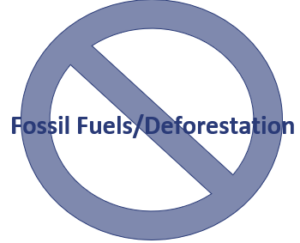Greenwashing
Greenwashing is the practice of making false or misleading claims about the environmental benefits of a product, service, or company in order to create a positive public image.
Greenwashing is usually done by companies that want to exaggerate their ESG score. These companies try to deceive professional and retail investors that consider ESG criteria to ensure that the capital they provide is used in a way that improves welfare or that does not adversely impact the environment.
Greenwashing can also occur in the investment industry. Mutual funds may claim to be “green” or “sustainable”, but then invest in companies that are heavily involved in fossil fuels or deforestation. Another example could be a mutual fund that claims to be socially responsible but at the same time invests in companies with a history of unethical labor practices.
On this page, we discuss different forms of greenwashing that investors should watch out for.
Types of greenwashing
Greenwashing can take many forms. It can consist of:
- making vague or unsubstantiated claims about a product’s environmental impact,
- using eco-friendly buzzwords or logos without providing any meaningful information about the product’s environmental benefits,
- making false or misleading claims about a company’s environmental practices.
Making these kinds of claims can be harmful because it can mislead consumers into thinking that they are making environmentally-conscious choices when they are not.
It is a harmful practice that can also undermine the efforts of genuinely environmentally-conscious companies by diluting the value of eco-friendly labels and making it more difficult for consumers to differentiate between genuinely environmentally-conscious products and those that are simply trying to appear green.
How to avoid greenwashing?
Greenwashing can be difficult to detect, as companies may use language that sounds environmentally friendly, without actually making meaningful changes to their practices.
To avoid greenwashing, it is important for consumers and investors to be skeptical of environmental claims and to do their own research to verify the accuracy of such claims.
This can include looking for third-party certifications or labels that provide independent verification of a product’s environmental benefits, reading product labels carefully, and asking companies for more information about their environmental practices. One company that provides such information for investment professionals is Sustainalitics.
Summary
We discussed the practice of greenwashing. Investors should be wary of companies that claim they make environmentally-conscious choices that have not been verified by third parties.

